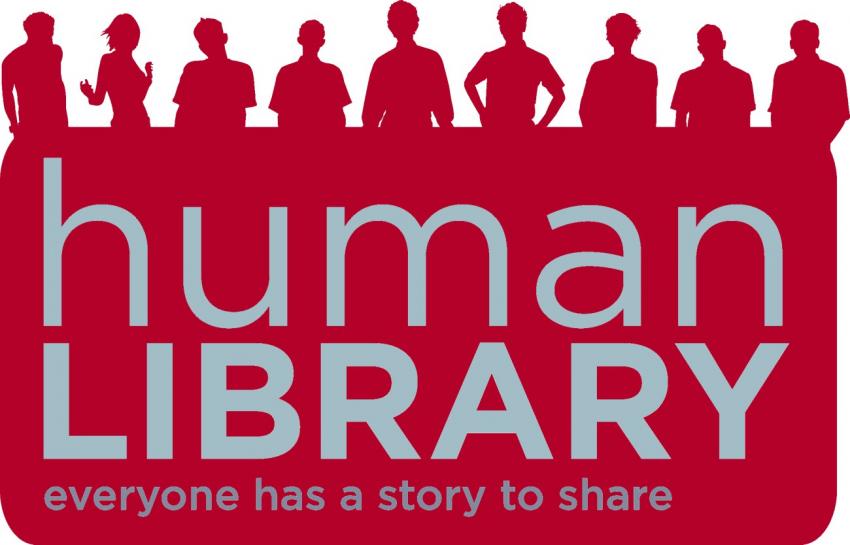Human Library Offers Book on Recovery
Human Library Logo https://www.lbhf.gov.uk/articles/news/2016/08/help-fight-prejudice-becoming-hf-human-book
April 24, 2023
The University of Pittsburgh at Johnstown held their first Human Library event in Owen Library on March 28. Students had the opportunity to attend and learn about a variety of different stories that address what many perceive as “uncomfortable topics” in our society.
The Human Library program was created in 2000 in Copenhagen by Ronni Abergel and Dany Abergal, Asma Mouna , and Christoffer Erichsen. Today, the program that these pioneers established as a nonprofit program is a worldwide phenomenon, and it helps people accept their own narratives while developing an understanding of those around them.
What makes this event unique is that it features an audience-led discussion open for anyone to ask any questions about the stories of racial minorities, and it promotes complete honesty and transparency in the responses to those questions. Each “book” is then a real person sharing his or her real story for everyone to learn about.
The students who attended this event at Pitt-Johnstown had the pleasure of meeting and listening to the story of Nicole Cruzi; Cruzi is an accounting and human resources supervisor who is married and has two children. “I chose to participate in the Human Library experience because it has provided the framework for me to allow others into my world with the hope that the readers will see me for me instead of simply my book title,” Cruzi noted.
After she began to explain her life, students and community members quickly gathered to hear more about Cruzi’s story. “I started using drugs the summer after I graduated high school; I was 17 years old. By the time I turned 20, I was already a full-blown heroin addict,” Cruzi said.
Based on stereotypes and cultural norms, readers at the event would not have taken Cruzi as a former drug addict. Yet, while listening further, readers discovered that Cruzi had been a drug addict for nearly 13 years.
This was important considering Cruzi’s audience at Owen Library. According to the National Institute on Drug Abuse, drug use trends the most in college aged students from 19-22. The rate of drug users in college versus those not in college is significantly higher and growing yearly.
Cruzi’s story not only taught students to accept people for their past, but also offered hope to those who might be in a similar situation.
Cruzi suggested, “I finally got clean a month after I turned 30; I now have eleven and a half years of continuous clean time from all drugs and alcohol.”
Most current drug education is focused on its dangers and the repercussions of drug use. Cruzi demonstrates that even if someone is deeply addicted, that person can make a change to his or her life.
While it is important for students to learn about the dangers of drug use and how to stay away from drugs, it is also important to teach about the recovery process.
It is crucial for students to understand that the drug epidemic is here and more relevant than ever, but there are ways out of it. It is possible to recover from severe addiction to any drug, at any age. You just must have the determination and willingness to work for it.
“For an addict who wants to stop using, there are so many recovering addicts in this world, you are not alone,” Cruiz said. “There is help available and many individuals who will understand your pain and experiences and be able to provide support as you stop using drugs.”
If you, a loved one, or a friend need help managing the recovery process, contact the Substance Abuse and Mental Health Services Administration national hotline at 1-800-662-4357 or visit their website at www.samhsa.gov.

